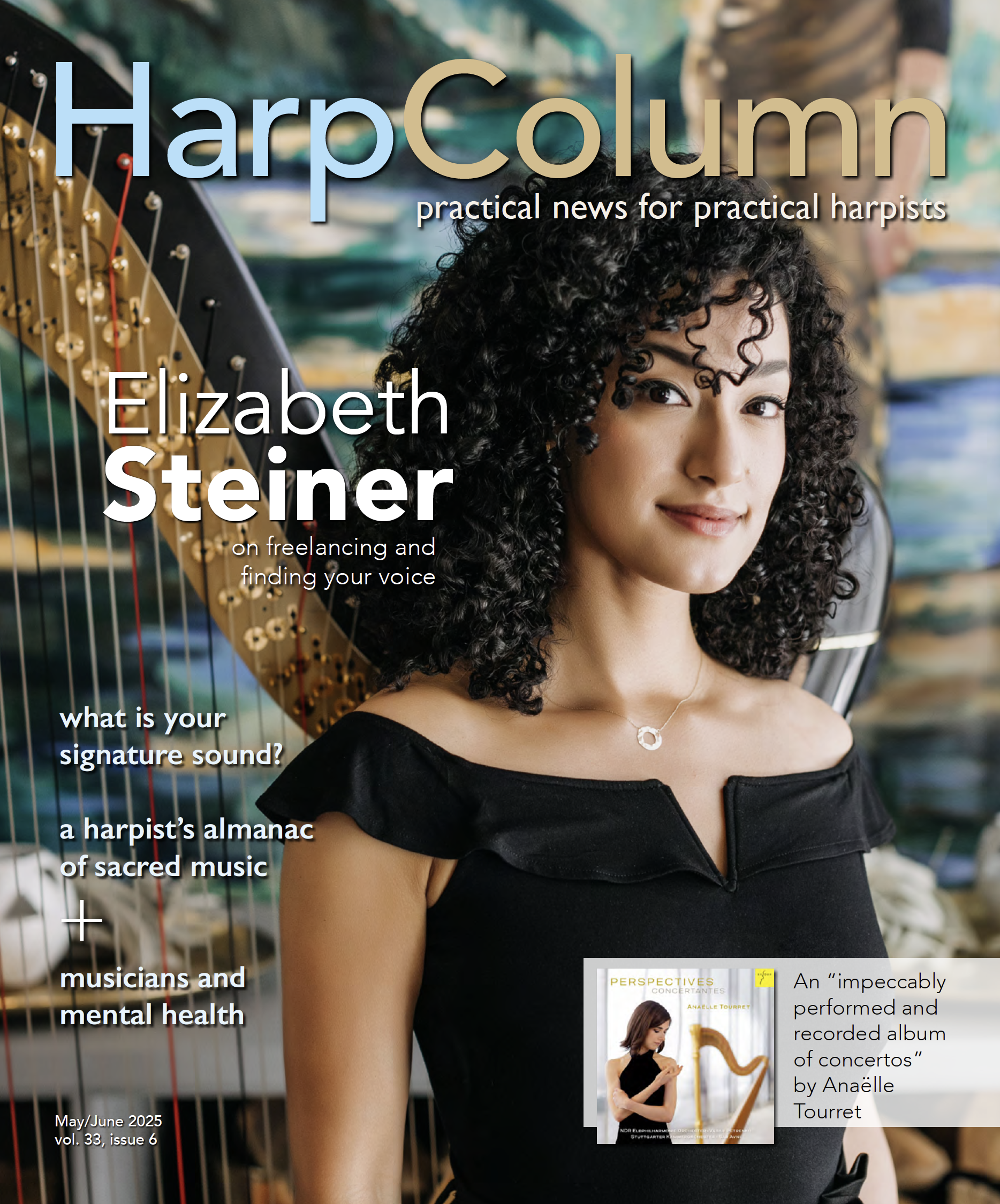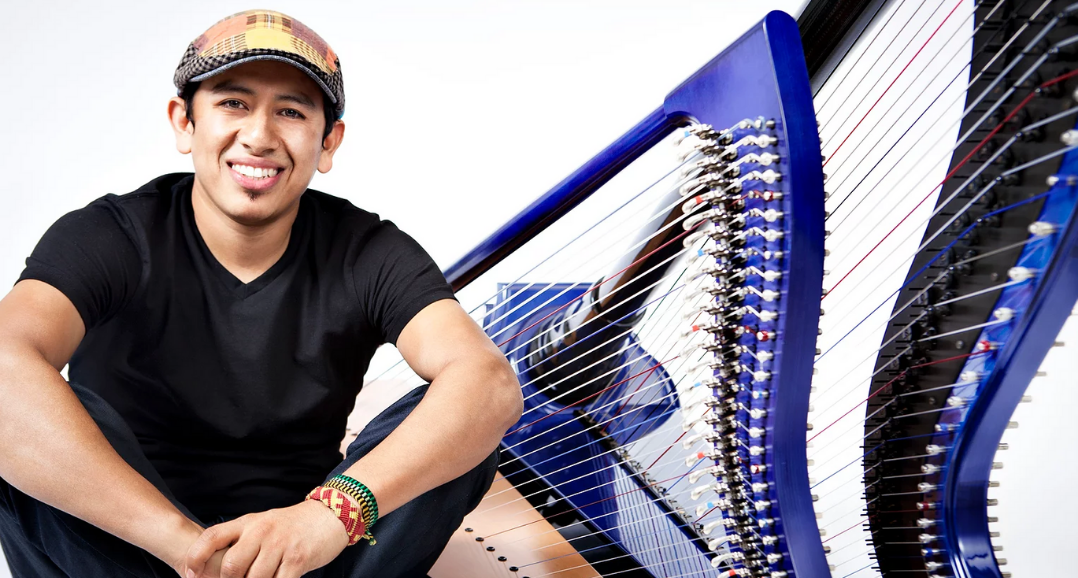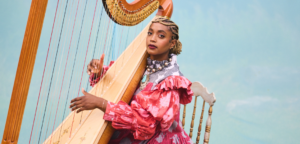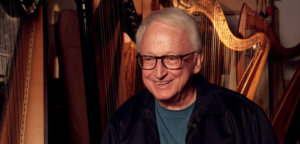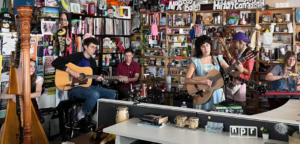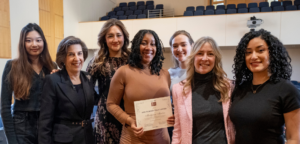Colombian-born harpist Edmar Castañeda released his seventh album, Family, on May 21, featuring a blend of original compositions and traditional Colombian songs with his wife, Andrea Tierra, as guest vocalist. We talked to Castañeda to learn more about the inspiration behind his latest album and the roadblocks he navigated to make it happen.
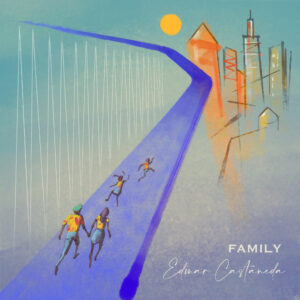
Edmar Castañeda’s seventh album, “Family,” was released May 21.
How did you come up with the idea for your new album?
This album grew out of the time we spent together as a family—the BBQs in the backyard with just the four of us, the wine I shared with my wife at night, the homeschooling of my kids, the dancing and singing together, and the prayers we made every night as a family. This album means more than music to us. We wanted to reflect the whole world as a united family.
What were some of the challenges with making your album?
I began the recording project in October of 2019 with my wife Andrea on voice, Shlomi Cohen on saxophone, and Rodrigo Villalon on drums. A month later, we faced our first challenge. I fell from my attic and broke my right wrist, both bones broken in tiny pieces. Doctors said they would have to put some metal and screws inside my wrist. All my gigs and tours were cancelled, of course, and we began to live on our family savings. I had a fast recovery. What doctors said could take eight months to a year took me four months, and I was ready to play by the end of February 2020. But just when things were improving for us, the pandemic hit the world. All our concerts were cancelled again, and the rest is history.
What was most meaningful for you about creating your CD Family?
It has been hard, but after a year and a half of struggle, we have come to the realization that we lack nothing if our family stays together. We actually got to live what we recorded at the studio in 2019. This album means a lot to us because it represents hope, resilience, strength, faith, purpose, unity, peace, and love. It is the testimony that God never leaves us, never forsakes us. We have survived all this, and we want to share it with the world. We want everyone who is suffering right now to know that there is hope. I won’t lie to you, you get worried. Especially when you are a father, you worry about money, you worry about your music, your kids, your wife, and your health. But God has been with us through it all, giving us peace. He’s teaching us to enjoy life with few material things, and to treasure each other.
Tell us more about the tracks on your album. What is special about each song?
“Battle of Faith”: Faith is a battle, and we have experienced it like never before with this album. This song wants to encourage people to keep the good faith until the end.
“For Jaco”: This is a song I composed, inspired by [jazz bassist] Jaco Pastorius, who I admire dearly. It features the way I play bass lines with my left hand.
“Canción con todos”: This song is a standard of Latin American music. The lyrics are perfect for the album, because they talk about the whole American continent united as one, with all its richness and beauty.
“Family”: This one is inspired by my own family. My son Zamir actually gave it the name. It is full of joy, love, and strength. This song condenses the whole album into our message of the world united as one big family.
“Agua fresca”: This is a very popular song in Latin America, written by a Venezuelan harpist. I learned this song when I was just a boy, and now I gave it a turn, with all the musical influences I have from all these years touring the world.
“Acts”: I composed this one based on a Bible verse, “faith without works is dead.” It is an invitation to not only have faith, but to act on it.
“My Favorite Things”: This is our own version of “My Favorite Things” [from The Sound of Music]. We chose it because it is pretty much what we have done during the pandemic. We enjoy our favorite things and share them as a family, especially when we are feeling sad. My wife wrote a pajarillo for it, which is a musical style improvised by singers of llanera music.
Family is available on digital platforms, including Apple Music and Amazon Music Unlimited. You can read our interview with Castañeda in the January/February 2011 issue of Harp Column.




